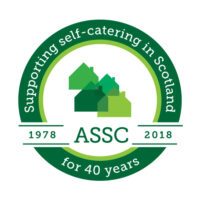Based on information by local councils, they ASSC has analysed the short-term let licensing fees published so far which strongly indicates that the figures have not been set on a cost recovery basis. For those secondary lets accommodating four or more occupants, the average fee for a license is over £1,000 which will have implications for the viability of many businesses.
- The Scottish Government’s More Homes Division have suggested that “the majority of the fees published so far by local authorities … fall within the estimate of £218 to £436 for a three-year licence predicted in the Scottish Government’s Business Regulatory Impact Assessment, and follow our guidance to tailor according to licence type and accommodation size”.
- However, regardless of theses assurances, it is clear that they are clearly far higher than Landlords Register Fees, of which there are three: Principal Fee: £68; Property Fee: £16 (per let property); and Late Application Fee: £137.
- Approximately twenty (20) local councils have provided information regarding the level of fees for short-term let licensing thus far.
- The ASSC believe that there is strong evidence to suggest that fees are not being set on a cost recovery basis, with large variations seen throughout Scotland.
- As Table A below shows, the average fees for both homesharing/letting and secondary letting for those accommodating more than 4 occupants averages above £1,000. Such costs – coupled with compliance with existing regulation as well as energy price increases – may force some operators out of business.
- Additional costs will have to be passed onto guests in a price sensitive market. If this becomes too prohibitive, visitors simply won’t choose to holiday using self-catering in Scotland, thereby damaging a key component part of our tourism industry.
| Table A: Fees Compared – Homesharing/letting vs Secondary Letting | |
| Homesharing/letting 3 year license | Secondary Letting 3 year license |
| Fees range from £125 to £3600.
Median = £1737 |
Fees range from £250 – £5869.
Median = £2809 |
- The secondary letting figures for City of Edinburgh, Dundee City Council and Perth & Kinross Council are particularly stark when compared to other local authorities for equivalent sized properties.
- Edinburgh: 11-15 occupants is £3,872 for a one-year license and for 16-20 occupants, it is £5,264;
- Dundee: £3,100 for 12-20 occupants on a three-year license; and
- Perth and Kinross: £1,600 for 11+ occupants.
The following table sets out the licensing fees that have been published so far: FEES v8
